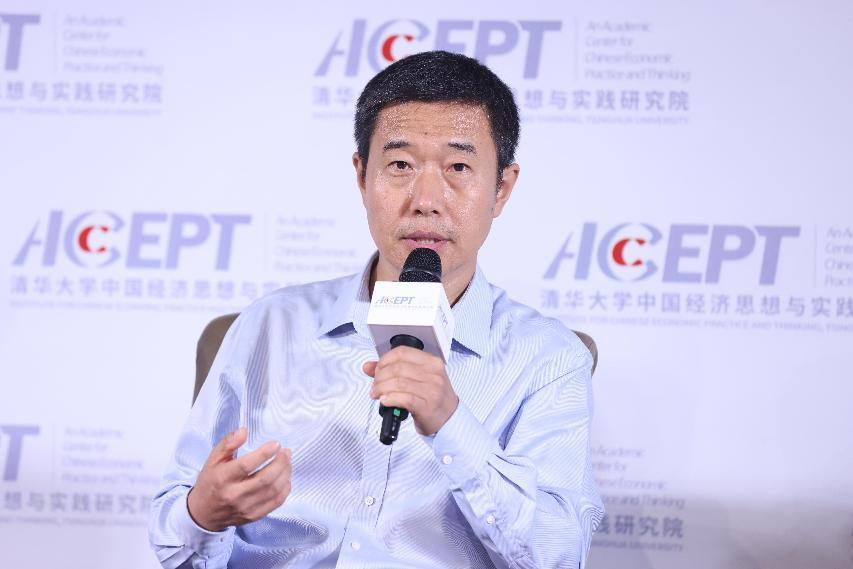Liu Peilin: Fostering private sector's development requires a coherent assessment of economic policies
The following is a summary of Liu Peilin's comments during a roundtable discussion at the 47th Tsinghua University Forum of China and the World Economy held at Tsinghua University, Beijing, on July 6, 2024. Liu holds the position of Research Fellow at the Academic Center for Chinese Economic Practice and Thinking (ACCEPT).
On July 6, 2024, the 47th Tsinghua University Forum of China and the World Economy, hosted by Tsinghua University's Academic Center for Chinese Economic Practice and Thinking (ACCEPT) in partnership with the School of Economics and Management Alumni Center, was held on campus. Research Fellow at Tsinghua ACCEPT, Liu Peilin, participated in a roundtable discussion at the forum alongside other distinguished guests where he discussed the importance of undertaking a coherent assessment of economic policies aimed at fostering the private sector's development.

On July 6, 2024, the 47th Tsinghua University Forum of China and the World Economy was held inside the Weilun Building's main lecture hall on campus at Tsinghua University's School of Economics and Management. The biannual event was hosted by Tsinghua University's Academic Center for Chinese Economic Practice and Thinking (ACCEPT) under the theme of China's 2024 Mid-Year Economic Update. During the forum's proceedings, Liu Peilin, Research Fellow at the Tsinghua ACCEPT, participated in a roundtable discussion alongside other distinguished guests where he discussed the importance of undertaking a coherent assessment of economic policies aimed at fostering the private sector's development.
Liu Peilin underscored that China should pay more attention to investing in people, including enhancing people's productive potential and mobilizing their consumption demand. China still has significant growth potential leftover, so there is ample reason to remain confident. Moreover, there is no contradiction between improving the quality of growth and sustaining a higher growth rate.
Over the past few years, the central government has introduced a number of measures to prop up the development of the economy’s private sector, but the momentum generated by these policy moves has gone largely unregistered, which may possibly reflect the drawn-out process for putting these policies into effect. A new problem that is impacting the development of the private sector has arisen as a result of the rights and interests of enterprises and entrepreneurs having been impaired. At present, there is an unfavorable atmosphere both in the public opinion and behavior of the broader society, with some policies enacted by the central government having been misunderstood or misinterpreted at the societal level, which is hence contrary to the original intention of the central government. For example, if an enterprise wants to contribute to “common prosperity,” the proper approach is to do a good job in managing the company and creating wealth for society, rather than killing the rich to help the poor or “the third distribution” of voluntary donations to public welfare as some people may think. As for the solution to this problem, the central government should take the initiative to dispatch relevant agencies or establish routine mechanisms to conduct a coherent assessment of economic policies aimed at developing the private sector, in this way making sure that all the various policies are followed and implemented to the letter.
On a related matter, some government departments at the grassroots level have misread the intention behind the central government's policies. For example, the central government did not say that the taxes should be audited, but in reality certain actors in the market have encountered such a scenario. The reason for this may be due to the overall economic slowdown, with local governments searching for various alternative tax sources given their need to repay outstanding debts. This kind of phenomenon will begin to disappear only when the macroeconomy regains its strength and economic forecasts are revised upwards.




